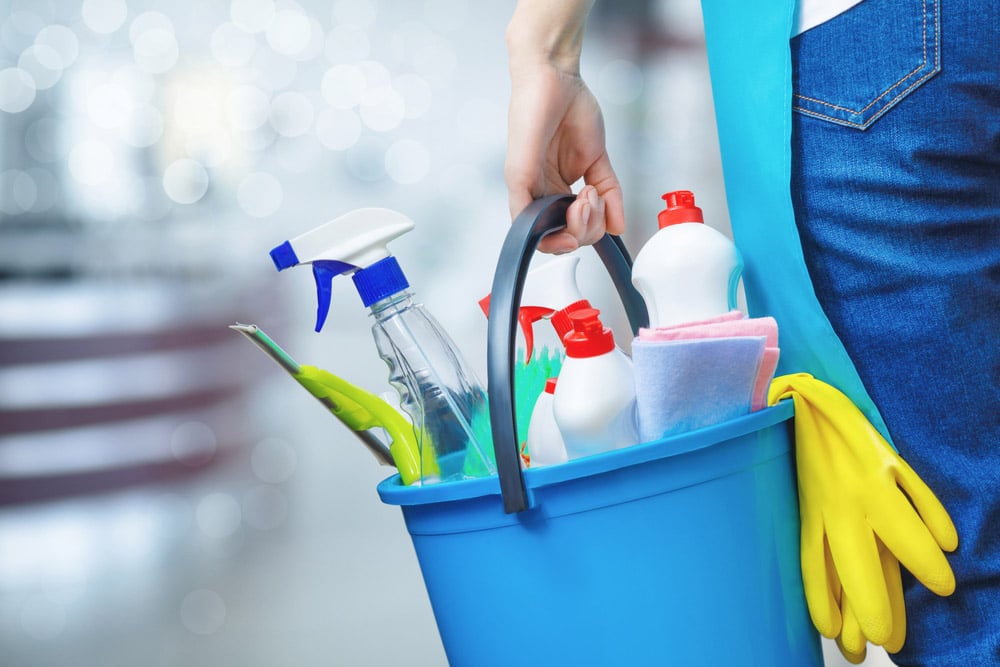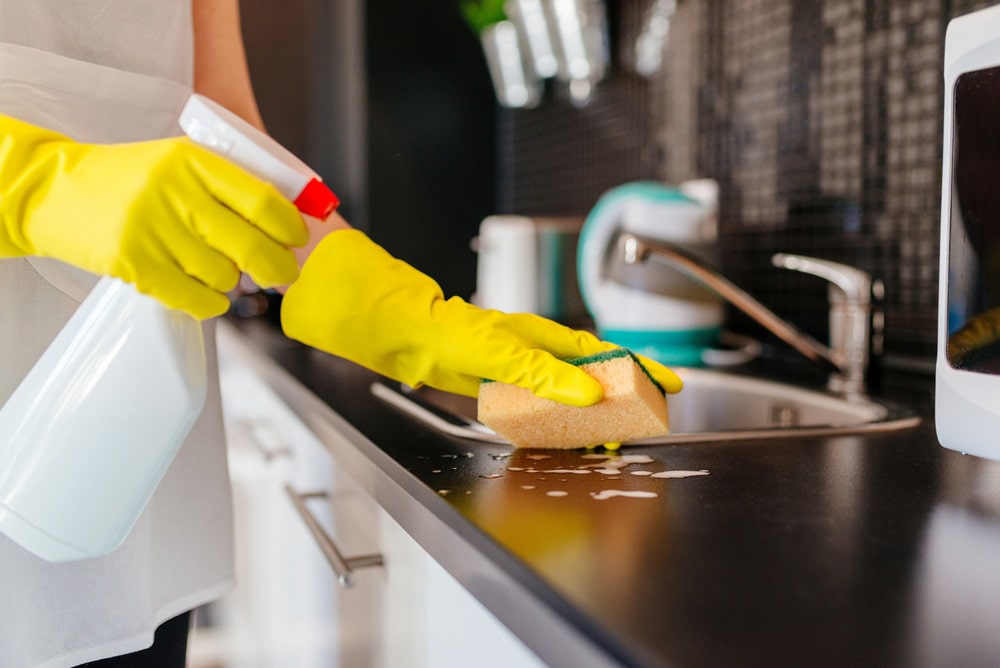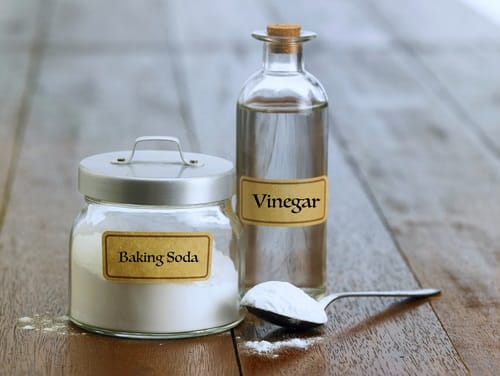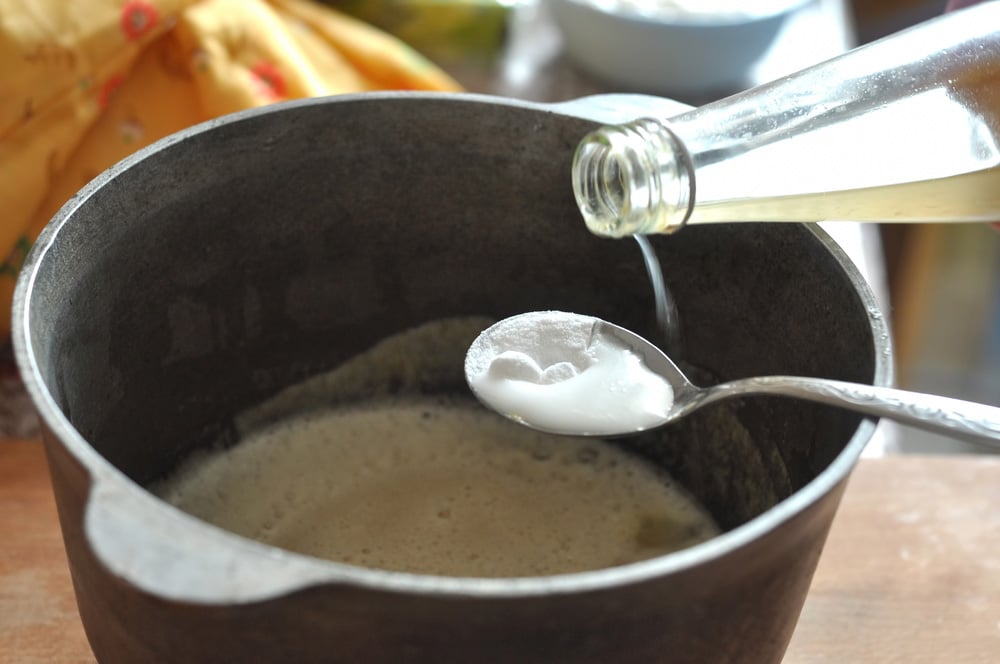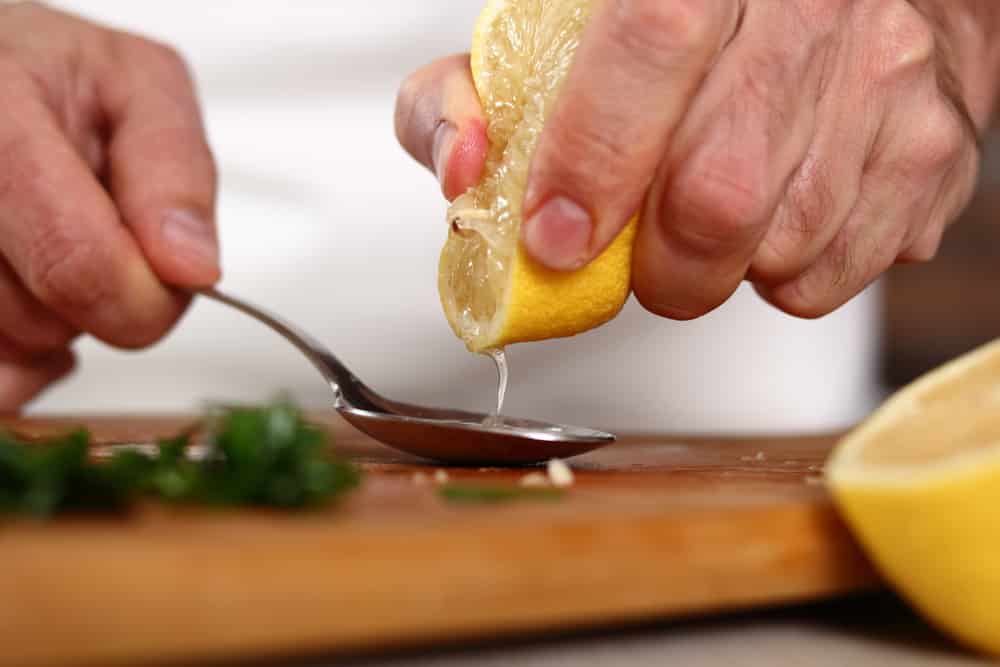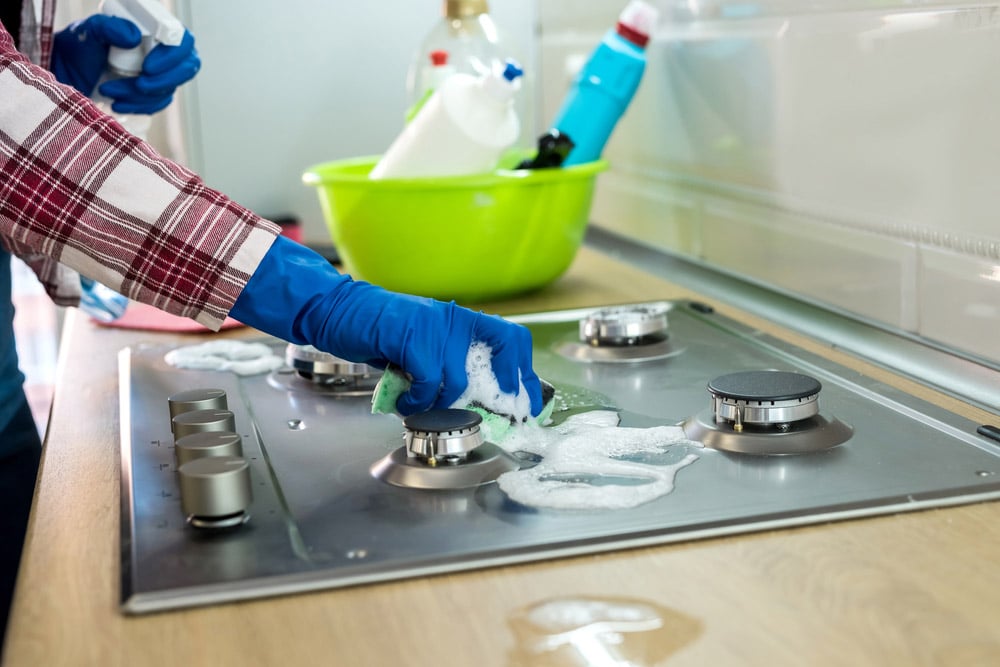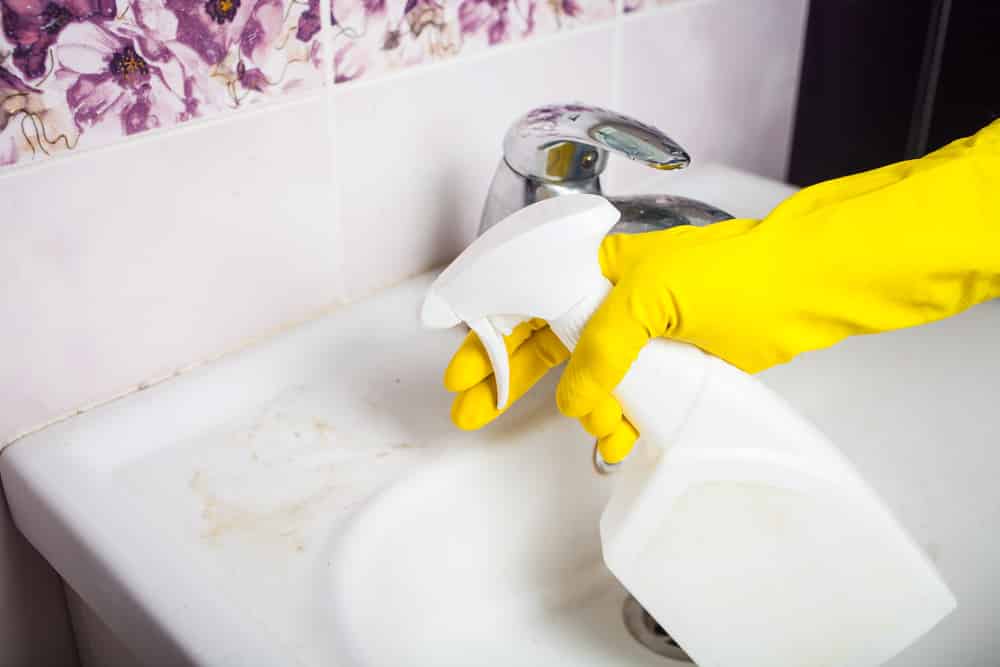
Keeping the kitchen clean is essential when it comes to maintaining recommended hygiene standards to ensure the quality and safety of food. This is why many people regularly clean their kitchens with specialized kitchen cleaners.
It’s also the reason people often ask if it’s acceptable to use bathroom cleaners in the kitchen or even in other areas of your home. If this is a question you’ve often asked, the good news is that we have the answer for you!
Using Bathroom Cleaner in Your Kitchen—Is it Possible?
The simplest answer to the question of can you use bathroom cleaner in the kitchen is: No, you shouldn’t!
Essentially this is because, compared to kitchen cleaners, bathroom cleaners are made up of stronger chemical compounds which can include bleach and ammonia. These compounds are specifically formulated to combat the bacteria found in toilets, sinks and showers.
As a result, they may be too harsh for kitchen surfaces. Furthermore, some bathroom cleansers also contain hydrochloric acid which, while excellent for bathroom germs, can be harmful in the kitchen. This mostly has to do with the fumes that this substance gives off.
Whilst cleaning your kitchen counter and tabletops, it’s quite possible for the fumes to come in contact with uncovered food or even to be inhaled by anyone in the kitchen.
In some cases, people use the same type of cleaner for the whole home in an effort to be cost-effective. When opting to do this, it’s recommended to opt for cleaners that are labeled as “all-purpose cleaners” which means they are safe enough to use throughout the home.
Are Kitchen Cleaners & Bathroom Cleaners the Same?
Since kitchen and bathroom cleaners are intended to clean very different surfaces, they are made from a range of different chemicals. Generally, the germ count in a bathroom is considerably higher than that of a kitchen sink or countertop.
This means that your bathroom requires a more comprehensive cleaning agent. If kitchens are cleaned daily, sinks, tables and countertops only need a mild detergent to keep them germ and dust free.
To keep harsh chemicals out of your kitchen, you can also clean surfaces with regular dishwashing liquid. Another point to consider is that milder dishwashing liquids are often cheaper than harsh bathroom cleaners.
So if you want to save money, minimize using the bathroom cleaner and opt for milder variants.
Using Bathroom Cleaners on Other Surfaces
For the most part, bathroom cleaners should only be used to clean the toilet area. Ideally, you should rather opt for a stain remover or all-purpose cleaner to clean areas such as the bathroom tiles, sinks and showers.
Natural Cleaning Products That Work in the Bathroom and Kitchen
If you want to use one specific cleaner throughout your house and at the same time avoid chemical-based cleaners, it may be a good idea to invest in natural cleaners.
A huge advantage to using natural cleaners is that you most likely already have them in your pantry! A few of the more popular chemical-free cleaning alternatives include:
- Lemon juice
- Vinegar
- Castille Soap
- Baking soda
- Rubbing alcohol
Another functional advantage of using natural cleaners is that you can use them anywhere in your home. It also eliminates the need to purchase and store several different types of cleaning agents.
Furthermore, natural products leave a fresh fragrance throughout your home, especially when adding citrus related ingredients like lemon juice.
- Vinegar and Baking Soda—Miracle Cleaner
One of the most common natural cleaning solutions is without a doubt vinegar and baking soda. Both ingredients have their own unique sanitizing perks.
Essentially, baking soda serves as an abrasive and natural deodorizer which makes it an excellent choice for scrubbing and odor absorption. Vinegar is an excellent anti-bacterial agent and is also good for removing water stains.
By combining these two ingredients, you are essentially mixing an acid (the vinegar) and a base (the baking soda) which creates the perfect cleaning agent for both kitchen and bathroom surfaces.
In addition to being a wonderful surface cleaner, a baking soda and vinegar mixture is equally useful for:
- Kitchen sinks
- Cleaning and unblocking drains
- All bathroom surfaces since it cuts through soap scum and mildew
- Removes stains on carpets
Making the Mixture
Making the vinegar and baking soda mixture is easier than you think. Simply follow these easy steps:
- Mix one and a half cups of baking soda with 1/2 cup of white vinegar
- Stir the mixture until all lumps have dissolved
- Pour the mixture into a spray bottle
- Shake well before using
- Spray the mixture onto surfaces that need cleaning
- You can also make a paste by adding more baking soda or less vinegar—a paste can be an effective way to clean stoves and areas where there’s stubborn dirt
- For basic cleaning, simply wipe off with a warm, damp cloth
- Surfaces that have stubborn dirt might require slight scrubbing with a nylon-backed sponge
- Rinse the surface with water and dry
- To clean carpets, add 1/2 cup of mild liquid soap
- This mixture is also an effective drain cleaner if combined with boiling water—simply pour vinegar down your bathroom or kitchen sink and follow with baking soda and boiling water
- Lemon Juice Mixture
Another effective natural cleaning agent is lemon juice. It works well because of the cleaning qualities associated with citrus. To make a lemon juice cleaning mixture, use these steps:
- Pour 1/2 cup of white vinegar into a spray bottle
- Add 2 cups of water, 1 teaspoon of dishwashing liquid and 20 drops of lemon essential oil (you can use freshly squeezed lemon or bottled lemon juice)
- Shake well and spray onto surfaces as needed
- Wipe clean using a damp cloth
- The advantage of using lemon juice is the citrusy fragrance that’s left behind
- Rubbing Alcohol Disinfectant
If you need a disinfectant slightly stronger than vinegar and baking soda, a rubbing alcohol mixture might be just what you need. Here’s how you make it:
- Mix 2 parts rubbing alcohol to 1 part water
- Add to a spray bottle
- Mix well
- Use to disinfect areas in your home that come in contact with germs
Further tips:
- You can also use this mixture to clean medicinal items such as thermometers
- By mixing some vinegar into the mixture you’ll have a wonderful glass and mirror cleaner and can also be used on chrome and hard tile surfaces
- Adding baking soda to rubbing alcohol creates a paste that can be used to remove grime and germs from in and around kitchen sink surfaces
- Mixing rubbing alcohol with regular dish soap makes a robust cleaning mixture for floors and windows and bathroom surfaces
- You can also add 5 – 10 drops of peppermint essential oil to any of your rubbing alcohol mixtures to enhance cleaning and provide a fresh fragrance
Conclusion
Give some thought to the areas you need to clean before you purchase specific cleaning products.
Opting for multi-purpose cleaning agents will reduce the need to buy several different types. Alternatively, natural cleaners will make all types of surfaces clean and leave them smelling fresh!
